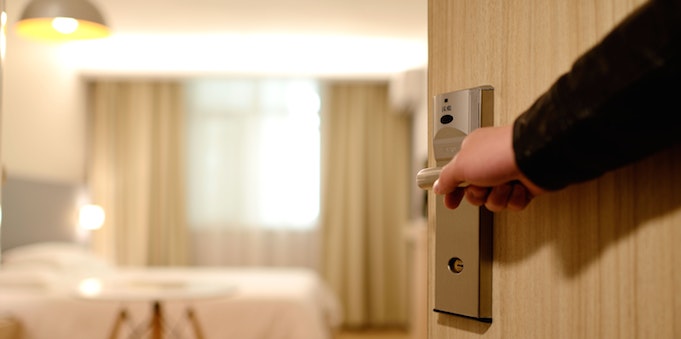
A set of proposed regulations which would address worries about the rise of short-term rental accommodation in Australia have been welcomed by motel operators, amid ongoing disruption from the growing digital economy.
Yesterday the NSW government opened a consultation on a push to bring the regulatory requirements facing accommodation providers on platforms such as Airbnb into line with those independent operators already comply with.
Under the draft reforms, new limits will be introduced to govern the use of dwellings for short-term rental accommodation, alongside a mandatory code of conduct which will apply to online booking platforms, letting agents, hosts and guests.
It follows legislators in Tasmania last year seeking to increase fines for short-stay accommodation providers that aren’t compliant with the state’s planning rules, as regulators at the state and federal level play catchup with the growth of property technology platforms.
The move has been welcomed by Dean Long, chief executive of the Accommodation Association of Australia, who says the NSW regulations will “level the playing field” and improve safety for guests.
“At the moment, there’s a competitive disadvantage, but its also putting people who stay in those properties at risk,” Long tells SmartCompany.
Independents struggling
It comes as independent motels struggle to reap the benefits of tourism growth in Australia, wedged between the expansion of platforms such as Airbnb and high fees associated with online travel agency bookings.
Since launching Down Under back in 2013, Airbnb has managed to capture significant market share, but as the multi-national platform expands into regional Australia, there are concerns motel operators are finding it hard to keep up.
More than 301 million visitor nights were logged in regional Australia last year, a 29% increase in 2013 numbers, as the rising popularity of self-drive holidays ushers domestic tourists inland, Tourism Research Australia (TRA) data reveals.
More than half of regional visitor nights are now being spent in private hotel rentals such as Airbnb though, while just 19% are in hotels and motels.
That’s bad news for independents, with the motel industry expected to grow just 1.4% in 2019-20, despite the tourism boom, according to IBISWorld.
“It’s putting a lot of pressure on regional motels,” IBISWorld senior industry analyst Nathan Cloutman tells SmartCompany.
“As Airbnb has got bigger and people are using it more, Australians are realising they can put their own properties on there.”
There were over 90,000 listings placed on Airbnb in 2017, more than double 2016 numbers, figures Cloutman says indicate the platform is quickly becoming much more dominant Down Under.
“Tourists know about Airbnb. It’s a global platform people are familiar with,” he says.
“Motels don’t really have that.”
Things look slightly better for hotels and resorts, which despite also facing stiff competition from private rentals but are moving towards new management models to bolster revenue.
But as property technology platforms proliferate with the rise of the digital economy, prices are becoming more transparent across the market, which has placed additional pressure on independents trying to remain relevant.
Levelling the playing field
As SmartCompany has previously covered, small business operators in the accommodation sector feel online booking platforms such as Booking.com and Expedia are necessary to remain competitive with platforms such as Airbnb.
However, those who opt to sign deals with the multinationals are slapped with commissions as high as 30% for online bookings, putting many in a position where they struggle to make a profit.
The ACCC has been investigating the conduct of online travel agencies amid calls for the federal government to crack down on the use of pay parity clauses in the sector.
Pay parity clauses are inserted into contracts with online travel agencies, preventing accommodation providers from advertising a cheaper price on their own websites, even though operators feel they could offer customers cheaper deals because they don’t pay commissions on direct bookings.
Compounding these concerns, online travel agencies have pushed many independents off the front page of Google search results, meaning it can be harder for customers to connect with their businesses directly.
Before the election earlier this year, Labor committed to outlawing pay parity clauses, an announcement which prompted Expedia to promise it would axe the clauses on its own.
But the Coalition government has yet to commit to outlawing the clauses itself.
Long says efforts to convince the government to take action are ongoing.
“They haven’t committed to action, but we’d like that,” he says.
“We’re looking for a bipartisan approach.”
Meanwhile, Long says independents are investing actively in modernising their business models and is optimistic about the long-term role of motel and hotel operators in Australia, provided competition concerns can be addressed.
“That level playing field is essential to deliver that return on investment,” he says.


COMMENTS
SmartCompany is committed to hosting lively discussions. Help us keep the conversation useful, interesting and welcoming. We aim to publish comments quickly in the interest of promoting robust conversation, but we’re a small team and we deploy filters to protect against legal risk. Occasionally your comment may be held up while it is being reviewed, but we’re working as fast as we can to keep the conversation rolling.
The SmartCompany comment section is members-only content. Please subscribe to leave a comment.
The SmartCompany comment section is members-only content. Please login to leave a comment.